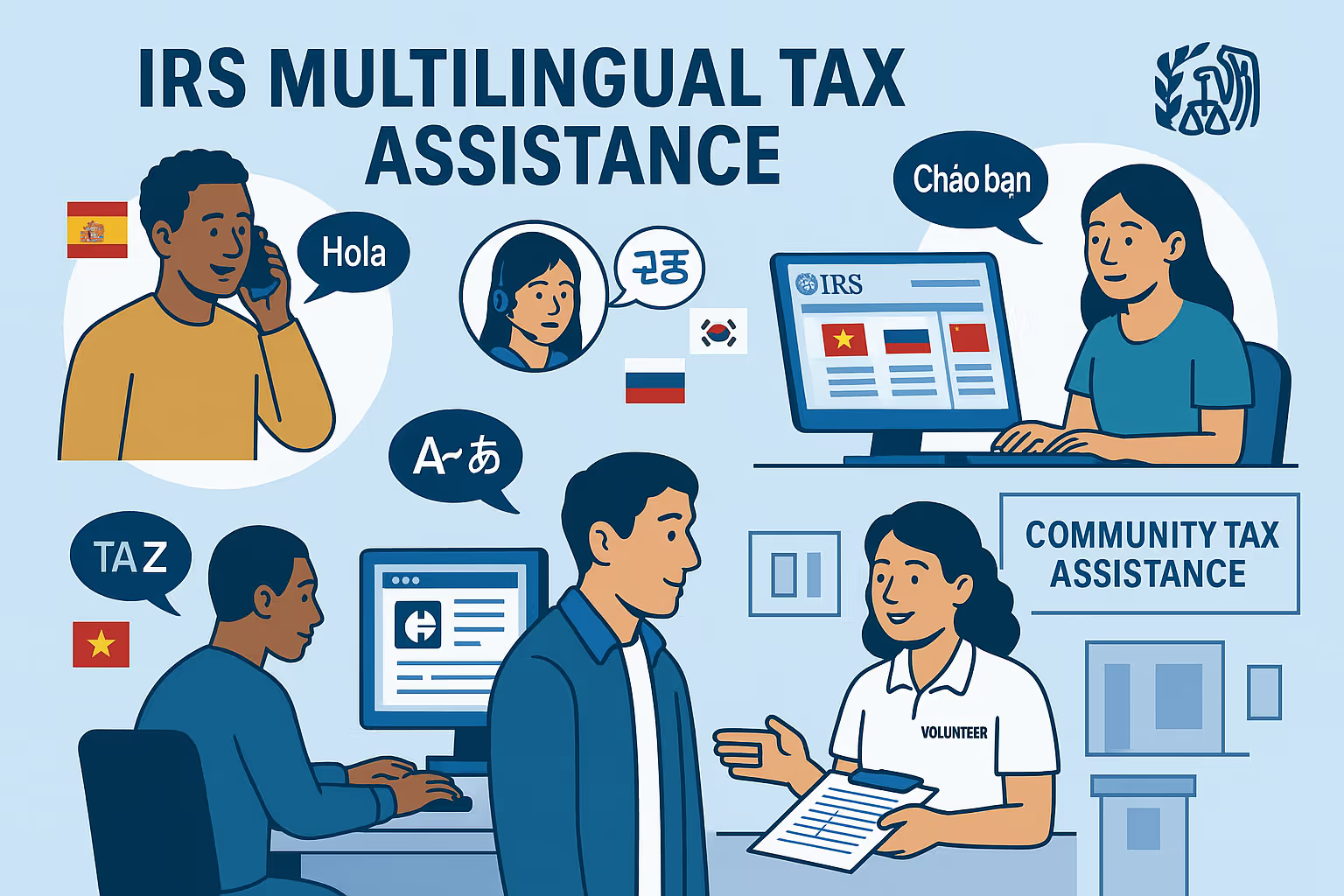IRS Multilingual Tax Assistance Expands to Support Limited English Proficiency Taxpayers



The Internal Revenue Service has launched a major expansion of its multilingual tax assistance program, offering new translations, online tools, and free interpreter services in more than 20 languages. The effort aims to help taxpayers with limited English proficiency file accurate tax returns, pay taxes on time, and access IRS services before the April deadline.
The IRS.gov website now features a Languages portal that provides essential tax information in 21 languages. Taxpayers can translate pages into Spanish, Russian, Korean, Vietnamese, and other languages, making reviewing filing instructions easier and understanding taxpayer rights.
In addition to online resources, the IRS has expanded access to translated forms and publications. Key documents, such as Publication 17, are now available in multiple translations. Taxpayers may also file Schedule LEP to request that IRS records and official notices be sent in their preferred language.
Free phone support is also available. Taxpayers can reach representatives by calling 800-829-1040 for English or Spanish assistance or 833-553-9895 to connect with interpreter services in more than 350 languages. These services are designed to serve both individuals and businesses and remain free of charge.
Beyond its digital tools and phone lines, the IRS is strengthening community-based programs that serve taxpayers face-to-face. Volunteer Income Tax Assistance (VITA) and Tax Counseling for the Elderly (TCE) sites now have access to over-the-phone interpretation, allowing representatives to help people in dozens of languages.
In cities such as Salinas, these programs provide in-person support for individuals who need help preparing and filing a tax return. The addition of interpreter services ensures that taxpayers with limited English proficiency can request assistance without cost and meet required obligations by the end of the year.
The IRS says expanding these programs is a critical step in ensuring that local taxpayers—especially those who speak Spanish, Vietnamese, Russian, or Korean—receive the same level of service as English speakers.
Limited English proficiency has long been a barrier to many individuals' understanding of tax rules and filing correctly. Taxpayers who cannot easily review IRS records or translate official forms often face delays, requests for clarification, or penalties.
The IRS notes that millions of people in the United States speak a language other than English at home. By expanding multilingual services, the agency aims to serve this diverse population more effectively, ensuring that taxpayers can file, pay, and request help confidently.
Officials also emphasize that providing equal access to tax services is not only a matter of fairness but also helps businesses and individuals stay compliant with the requirements each year.
IRS officials say the multilingual expansion is central to improving fairness in how the agency serves taxpayers. Commissioner Danny Werfel noted, “Understanding taxes can be challenging enough, so the IRS needs to put information into the language a taxpayer knows best.”
Community representatives working with Volunteer Income Tax Assistance programs in diverse cities, such as Salinas, say interpreter support has already improved the lives of individuals who struggle with English. They emphasize that free translation services allow taxpayers to file and pay on time without confusion, reducing the risk of errors or penalties.
These voices underline the IRS’s commitment to reaching taxpayers in their preferred languages and ensuring that limited English proficiency is no longer a barrier to service.
The IRS says it will continue to review forms for translations and expand its digital library of multilingual content. More languages are expected to be added to IRS.gov, while additional records and publications will be translated to support individuals and businesses.
The agency is also broadening outreach through social media and multimedia platforms, including a multilingual YouTube channel with tax information videos. By the end of the year, officials plan to strengthen interpreter access and expand free services to more community sites across the country.
These steps are part of a broader effort to serve taxpayers with limited English proficiency, ensuring they can request help, file required forms, and pay taxes on time.
By William Mc Lee, Editor-in-Chief & Tax Expert—Get Tax Relief Now